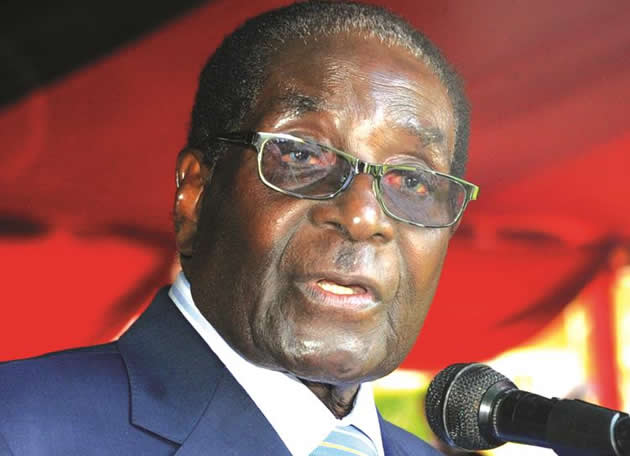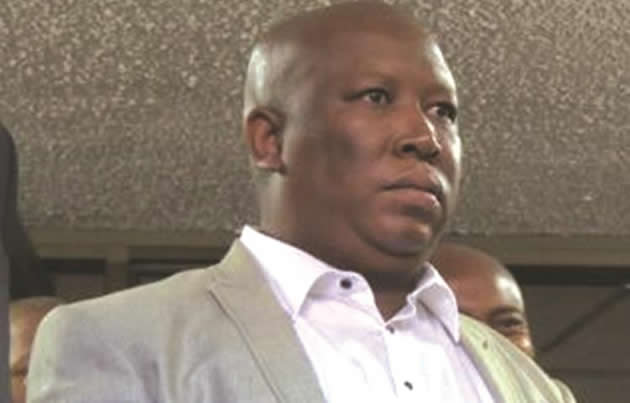Radar: A ghost town and a prophet called Julius
So much has happened in the past week or so and much ink has been expended. We would spend acres of space reviewing what came out in the papers and made big news — which is the prime role of this column — but much of the reportage is what you would expect, especially the warty kind that we are fed from the so-called private media.
And this week they were at their orgasmic best, probably sensing something apocalyptic to match with all they have been hoping and praying for for Zimbabwe.
The week witnessed a civil servants’ strike beginning Monday, and probably peaking on Wednesday, as Government workers protested against delays in getting their dues.
Somehow, this labour issue got misappropriated by some political zealots that were praying that this would somehow mutate into some kind of revolution — nay counter-revolution — in the country.
It is a matter of public record that elements in the opposition have been praying for some kind of Arab Spring to remove the legitimate status quo and this has largely gone unanswered in their prayers.
And, as it stands, Zimbabwe is back to normal after the strike action by a section of the civil service.
Fearing a ghost town
It will be recalled that the skirmishes that characterised the past week kicked off in Beitbridge with protests over import restrictions on non-essential goods.
The list by now is well publicised and we dare say that Government has moved in to restrict the ridiculous importation of such things as maheu, mineral water, cremora, cheese, yoghurts, fruits and vegetables; etc — all of which can be made or produced locally.
The importation of these, along with other trinkets and goods, has contributed immensely to the current environment of cash crisis and job losses.
The result has been a booming retail economy in South Africa which has found a ready market for its products in Zimbabwe.
The border town of Musina has been quite a metaphor for this economy of South Africa — principally being the go-to place for Zimbabwean shoppers and wholesalers and traders because of its proximity to Zimbabwe.
Life in this small town has been revolving around Zimbabwean shoppers — and Zimbabwean money.
Now, with the introduction of import restrictions, the border town is fearing the worst.
Indications are that it is the town’s businesspeople who instigated violent protests that were witnessed in Beitbridge as they sought to reverse the new regulations.
There is palpable fear in South Africans — which fear is very instructive, as we shall illustrate as indeed shall soon come to bear.
Nothing better illustrates this fear than an article that circulated widely about fears of Musina becoming a “ghost town”.
Read the story in part:
“The International Cross-Border Traders Association on Tuesday called on the Southern African Development Community (SADC) and the international community to save dying businesses in Musina.
“The association said the Zimbabwean government’s ban on imports last month was slowly poisoning their businesses and their clients were suffering prejudice.
“Traders in Musina, near the border with Zimbabwe, said their major clients were being restricted from importing basic food from South Africa.
The import restrictions sparked protests and the closure of the Beitbridge port of entry on Friday.
“African News Agency visited Musina on Tuesday and witnessed the economic distress of the former mining town.
“Most shops owners decided to close their stores early as there were no customers to inject much-needed funds into their businesses.
“Store owners said if the situation continued, they would consider closing shop.
Shop owner Bharucha Farouk said that he was struggling to make the sales he used to make.”
The shop owner is quoted as complaining that they now open shops in the morning but are forced to close at 10am because there is no business.
“I don’t think I will be able to pay rent and workers, and will need to close the shops,” said Farouk.
International Cross-Border Traders Association representative Dennis Jeru is quoted as saying that over the years members had come to depend on trading with Zimbabweans.
“If the situation continues there will be a total shutdown in Musina as most businesses rely on buyers from Zimbabwe. Without Zimbabwean clients, Musina will cease to be active,” said Jeru.
There are reports that the transport organisation, as seen in a memo, apparently generated from the organisation which sought to escalate cross border tensions.
One statement in the said memo actually called for the removal of police roadblocks in Zimbabwe, showing a deeper and darker side of the whole thing.
Prophet Malema
There are so many objectionable things about South Africa’s opposition Economic Freedom Fighters leader Julius Malema.
He is a controversial character with an inclination towards the heady and hasty.
But he has his redeeming features too especially when it comes to ideological clarity and the phenomenological grasp of black South Africa in the face of white capital.
His understanding of the centrality of land and the entrenchment of white capital at the detriment of blacks is a wonder to any student of African political economy.
For those who know a certain Robert Mugabe, they often hear him speak through Julius Malema.
In fact, the two people have interacted, perhaps more than once, especially on the one significant visit to Zimbabwe that Malema had a couple of years back when he was still the leader of the youth wing of the ruling ANC party in South Africa.
He is an admirer of land reform in Zimbabwe and has often defended the policy at various forums.
He emphasises the centrality of land and ownership of the means of production.
Now, just a couple weeks ago Malema said something interesting, if not exactly prophetic. He said Zimbabwe was richer than South Africa and that soon South Africans would be looking for jobs in Zimbabwe.
According to reports he said:
“They own their own land. You don’t own any land‚ you don’t even have title deeds. Your parents died without title deeds and your children will not have title deeds because black people don’t own any land…we will be lining up to ask for jobs there because we can’t create our own jobs.”
Now, if one were to consider what we have cited above regarding the possibility of Musina becoming a ghost town, there is everything prophetic about Malema, at least in this instance.
Zimbabwe has faced a lot of problems for close to two decades owing to illegal sanctions imposed on us by the West.
It is a trite point to make that South Africa has benefitted significantly from this largely by default as it has found a ready source of skilled and unskilled labour plus a huge market for its goods.
It has also found a captive market and an attractive one too given Zimbabwe’s use of the US dollar.
It now stands to reason that if things begin to normalise, indeed once Zimbabwe stabilises its economy, South Africa will begin to suffer growing fears ghost towns.
That is extreme view though. The tragedy is that Zimbabweans cannot grasp the longer term view that the import restrictions seek to achieve. Zimbabwe must grow its industries to achieve two-way trade.
This is the time to build mutually beneficial relations so that the two sister republics can walk together without burdening or exploiting each other.












Comments